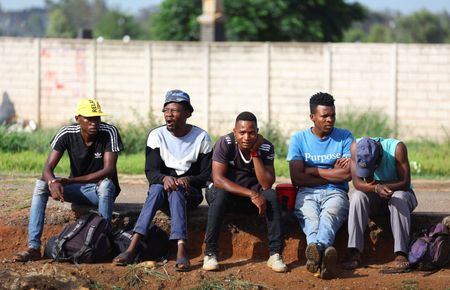By Cooper Inveen and Christian Akorlie
ACCRA (Reuters) -Ghana’s finance minister on Thursday announced sweeping spending cuts to reduce the deficit, contain rising inflation and slow the cedi’s slide, with the country facing a looming debt crisis.
The West African gold, oil and cocoa producer has seen consumer inflation rise to over 15% and the cedi currency has lost more than 15% of its value against the dollar this year. Its credit ratings have been downgraded over concerns about its ability to pass legislation to raise revenues.
After the central bank announced its largest ever interest rate hike of 250 basis points on Monday, Finance Minister Ken Ofori-Atta laid out a raft of fiscal measures at a news conference in the capital Accra.
“The difficulties we are facing in Ghana are not peculiar to Ghana,” he said, citing the two major issues impacting the economy as the COVID-19 pandemic and the war in Ukraine.
“We are confident these measures will address the short term challenges our nation is facing.”
The government will cut discretionary spending by an additional 10%, on top of a 20% cut announced earlier this year, and reduce government ministers’ salaries by 30%.
A moratorium will be imposed on government vehicle purchases and foreign travel without prior approval, and fuel coupon allocations to all government employees will be cut in half.
The government plans to conclude an external financing arrangement of up to $2 billion in the next two to six weeks to manage the cedi’s slide, Ofori-Atta said, adding that Ghana will not go to the International Monetary Fund (IMF) for aid.
Ofori-Atta said the government had been surprised by parliament’s rejection late last year of a proposed 1.75% levy on all electronic transactions, which he said had triggered the downgrading by credit rating agencies.
The government plans to re-submit the bill in April and will ask parliament to fast-track its passage, he said. It will also impose an e-commerce and e-gaming tax by the end of April.
Economists have warned the deficit may spark a full-on debt crisis if more money doesn’t come in.
Ghana’s total public debt stands at $50.8 billion, according to central bank figures, about 80% of the country’s gross domestic product.
(Reporting by Cooper Inveen and Christian Akorlie; Writing by Nellie Peyton; Editing by Aaron Ross, Bate Felix and Toby Chopra)









